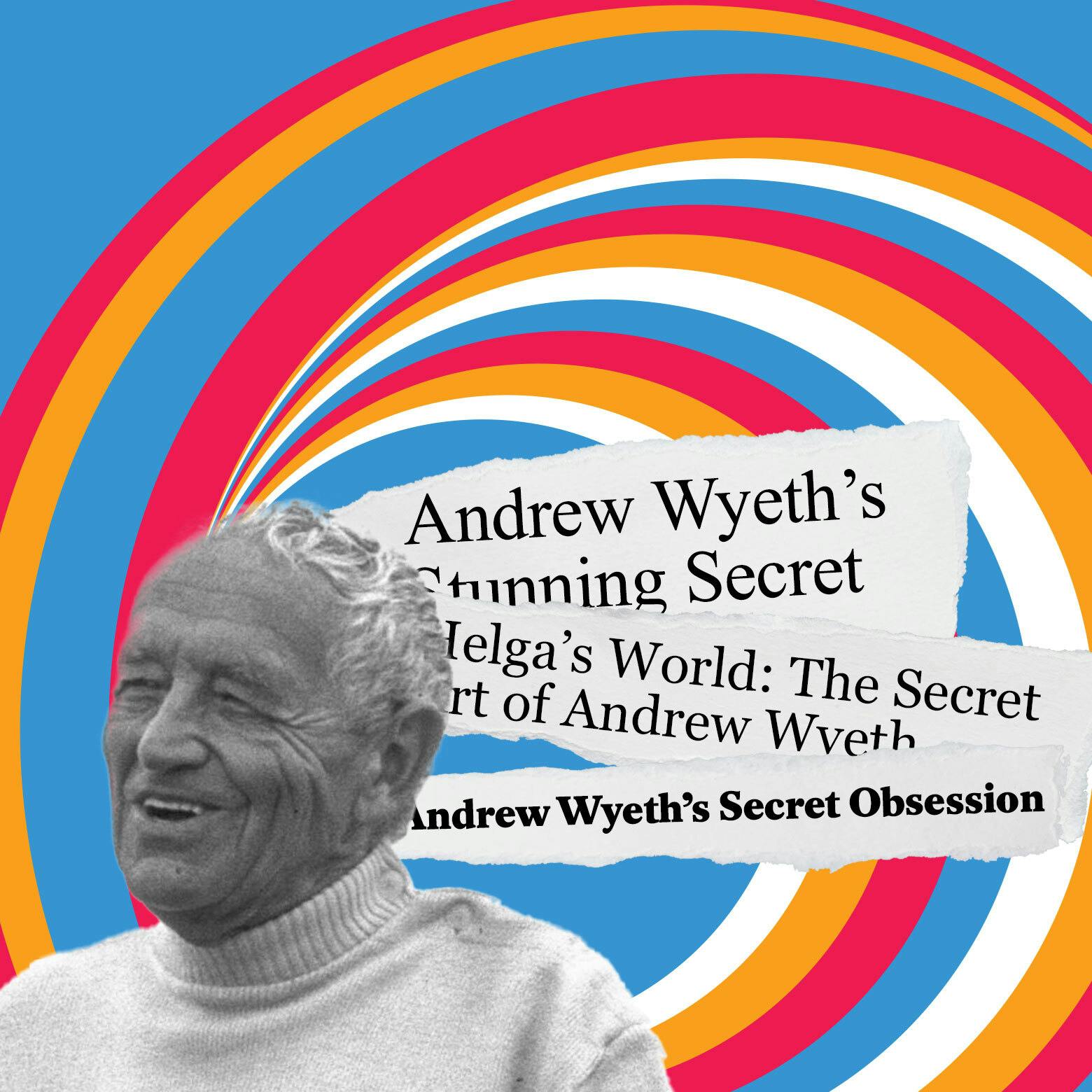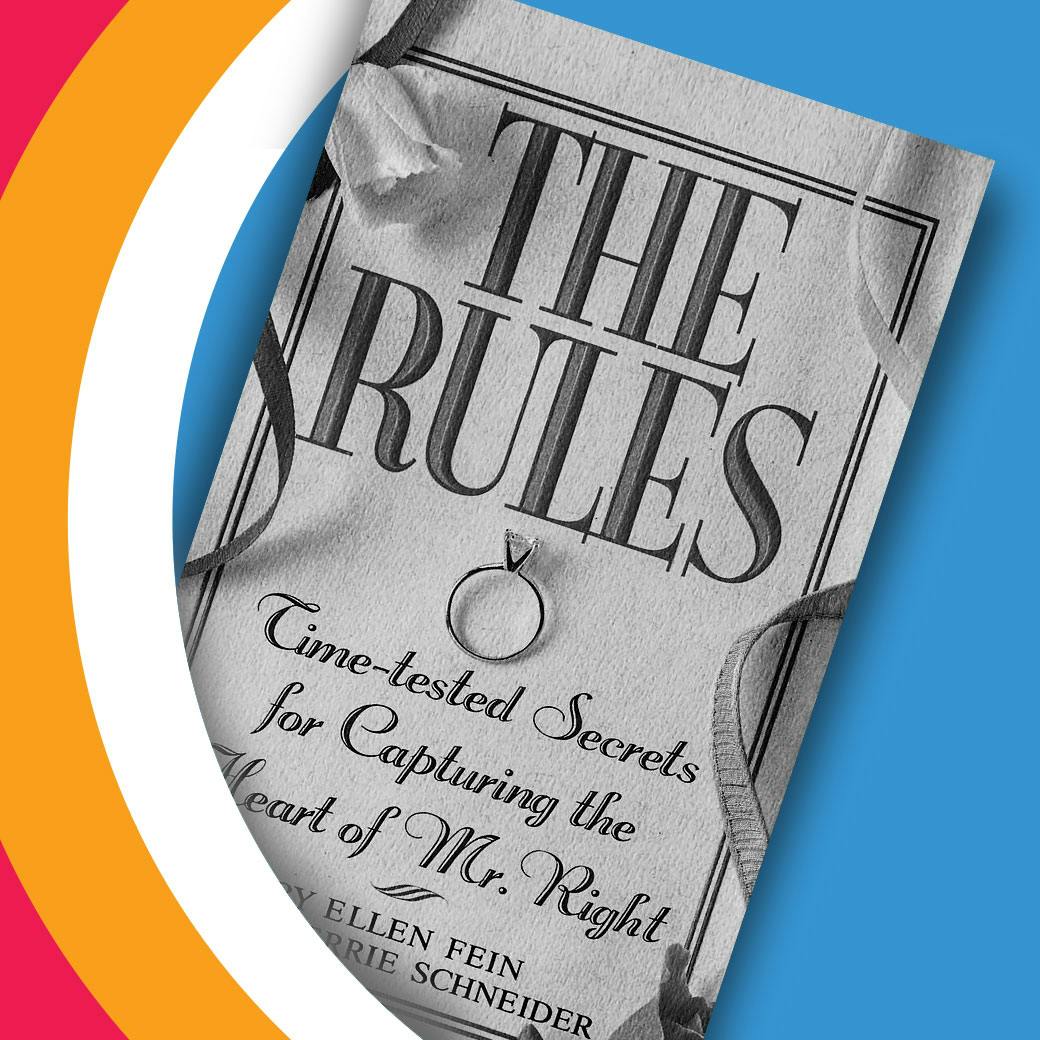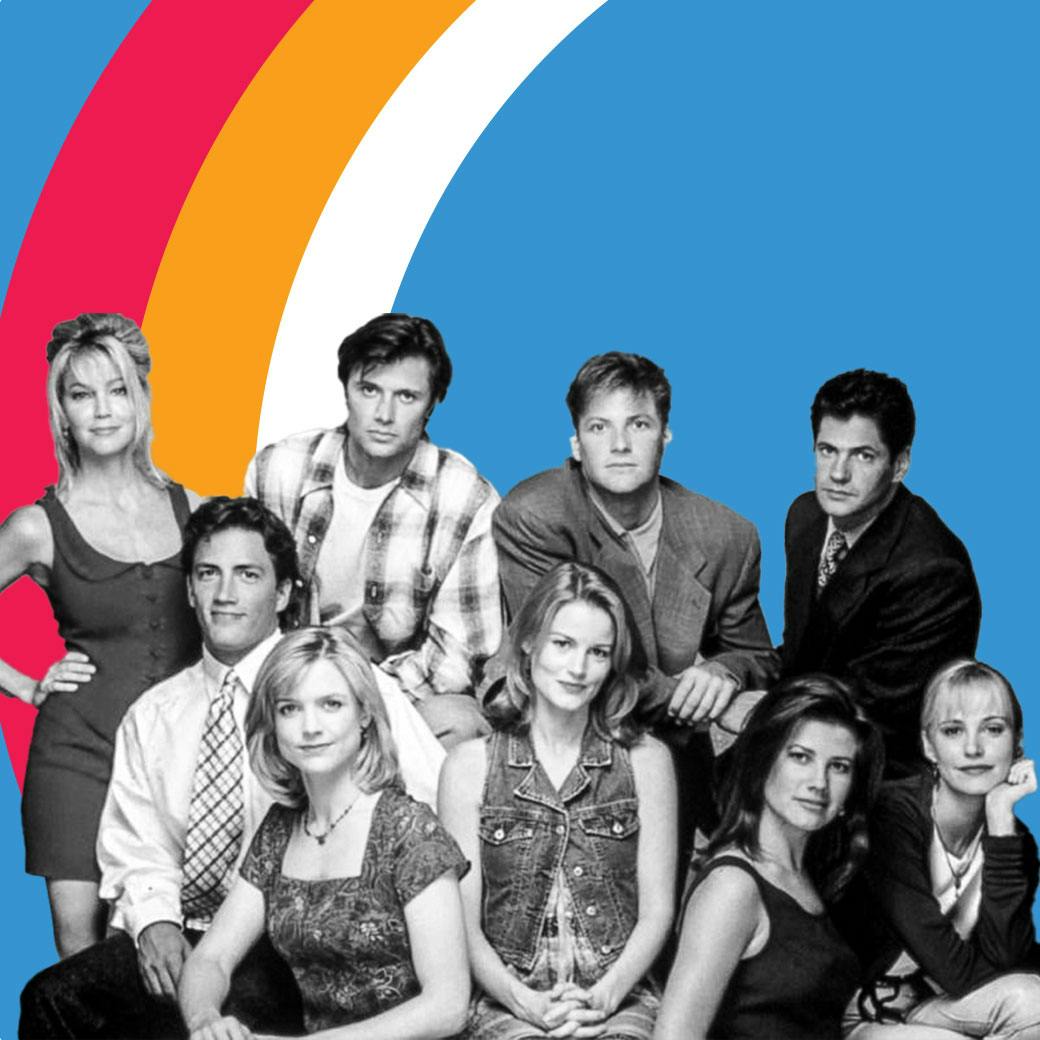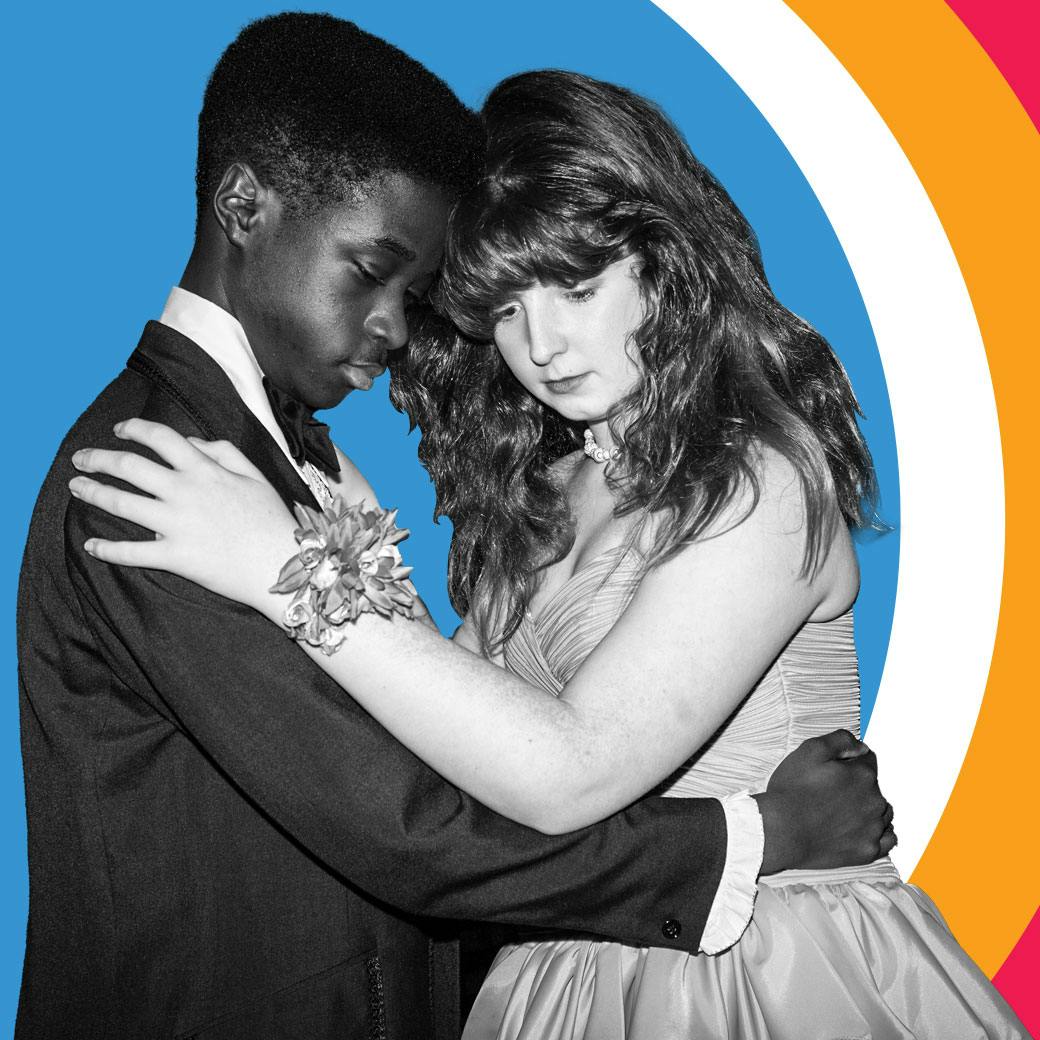Discover Decoder Ring
Decoder Ring

Decoder Ring
Author: Slate Podcasts
Subscribed: 10,588Played: 330,928Subscribe
Share
© 2018
Description
Decoder Ring is the show about cracking cultural mysteries. In each episode, host Willa Paskin takes a cultural question, object, or habit; examines its history; and tries to figure out what it means and why it matters.
94 Episodes
Reverse
Magazines have fallen on hard times – especially the weekly news, fashion, and celebrity mags that once dominated newsstands. The revenue from magazine racks has plummeted in recent years, and many magazines have stopped appearing in print or shut down altogether.
And yet, there is something growing in the checkout aisle: one-off publications, each devoted to a single topic, known as “bookazines.” Last year, over 1,200 different bookazines went on sale across the country. They cover topics ranging from Taylor Swift, Star Wars, the Kennedy assassination, K-Pop, the British royal family, and as host Willa Paskin recently observed, the career of retired movie star Robert Redford.
In today’s episode, Willa looks behind the racks to investigate this new-ish format. Who is writing, publishing, and reading all these one-off magazines – and why? Is the bookazine a way forward for magazines, or their last gasp?
Voices you’ll hear in this episode include Caragh Donley, longtime magazine journalist turned prolific writer of bookazines; Eric Szegda, executive at bookazine publisher a360 media; and Erik Radvon, comic book creator and bookazine fan.
This episode was produced by Max Freedman and edited by Evan Chung, who produce the show with Katie Shepherd. Derek John is Executive Producer. Merritt Jacob is Senior Technical Director.
If you haven’t yet, please subscribe and rate our feed in Apple Podcasts or wherever you get your podcasts. And even better, tell your friends.
If you’re a fan of the show, please sign up for Slate Plus. Members get to listen to Decoder Ring and all other Slate podcasts without any ads and have total access to Slate’s website. Your support is also crucial to our work. Go to Slate.com/decoderplus to join Slate Plus today.
Learn more about your ad choices. Visit megaphone.fm/adchoices
In 1986, Andrew Wyeth was the most famous painter in America. He was a household name, on the cover of magazines and tapped to paint presidents. And then he revealed a secret cache of 240 pieces of artwork, many provocative, all featuring the same nude female model. This collection, called The Helga Pictures, had been completed over 15 years and hidden from his wife, until they were revealed and wound up on the covers of both Time Magazine and Newsweek. The implication of these paintings were clear: Wyeth must have been having an affair, but then the story got complicated. Was it a genuine sex scandal? A hoax? Or something else entirely?
Some of the voices you’ll hear in this episode include Doug McGill, former New York Times reporter; Neil Harris, author of Capital Culture: J. Carter Brown, the National Gallery of Art, and the Reinvention of the Museum Experience; Cathy Booth Thomas, former Time Magazine correspondent; Gwendolyn Dubois Shaw, art historian and curator; Jeannie McDowell, former Time Magazine correspondent; Chris Lione, former art director at Art and Antiques; Joyce Stoner, Wyeth scholar; Peter Ralston, Wyeth photographer and friend; and Jim Duff, former director of the Brandywine River Museum.
This episode was written by Willa Paskin and produced by Willa Paskin and Benjamin Frisch. It was edited by Benjamin Frisch and Gabriel Roth. We had research assistance from Cleo Levin. Decoder Ring is produced by Evan Chung, Katie Shepherd, and Max Freedman. Derek John is Executive Producer. Merritt Jacob is Senior Technical Director.
A very special thank you to Paula Scaire.
If you haven’t yet, please subscribe and rate our feed in Apple Podcasts or wherever you get your podcasts. And even better, tell your friends.
If you’re a fan of the show, please sign up for Slate Plus. Members get to listen to Decoder Ring and all other Slate podcasts without any ads and have total access to Slate’s website. Your support is also crucial to our work. Go to Slate.com/decoderplus to join Slate Plus today.
Learn more about your ad choices. Visit megaphone.fm/adchoices
Like a manager or an agent or a publicist, a stylist has become a kind of must-have accessory for well-dressed, A-list celebrities. It’s just expected that they will have hired someone to select the clothes they’ll wear at public appearances. But this was not always the case.
In today’s episode, Avery Trufelman, host of Articles of Interest, will guide us through the collapse of a certain kind of Hollywood glamor; to the rise of a growing, financially rewarding relationship between fashion designers and celebrity culture; and then onto the explosion in red carpet events patrolled by fashion police that helped create this new occupation.
This episode was produced by Avery Trufelman and Evan Chung, who produces Decoder Ring with Willa Paskin, Katie Shepherd and Max Freedman. Derek John is Executive Producer. Merritt Jacob is Senior Technical Director.
You’ll hear from Teri Agins, Dana Thomas, Melissa Rivers, and Jeanne Yang.
If you haven’t yet, please subscribe and rate our feed in Apple Podcasts or wherever you get your podcasts. And even better, tell your friends.
If you’re a fan of the show, please sign up for Slate Plus. Members get to listen to Decoder Ring and all other Slate podcasts without any ads and have total access to Slate’s website. Your support is also crucial to our work. Go to Slate.com/decoderplus to join Slate Plus today.
Learn more about your ad choices. Visit megaphone.fm/adchoices
Thirty years ago, a new kind of soda arrived in select stores. Instead of crowing about how spectacular it was, it offered up a liquid shrug, a fizzy irony. OK Soda was an inside joke for people who knew soda wasn’t cool. But what exactly was the punchline? In today’s episode, we’re going to ask how Coca-Cola, a company predicated on the idea that soda is more than "OK," ever bankrolled such a project. It was either a corporate attempt to market authenticity or a bold send-up of consumer capitalism; a project that either utterly, predictably failed or, perhaps more surprisingly, almost succeeded.
This episode was written by Willa Paskin. It was edited by Jenny Lawton. It was produced by Willa Paskin and Katie Shepherd, along with Evan Chung. Derek John is Executive Producer. Merritt Jacob is Senior Technical Director.
You’ll hear from Sergio Zyman, Brian Lanahan, Robin Joannides Lanahan, Charlotte Moore, Peter Wegner, Todd Waterbury, Dustin Ness, and Matt Purrington.
Special thanks to David Cowles, Art Chantry, Seth Godin, Jeff Beer, Gabriel Roth, Mark Hensley for all the OK Soda commercials and Mark Pendergrast, whose book For God, Country, & Coca-Cola was indispensable.
If you haven’t yet, please subscribe and rate our feed in Apple Podcasts or wherever you get your podcasts. And even better, tell your friends.
If you’re a fan of the show, please sign up for Slate Plus. Members get to listen to Decoder Ring and all other Slate podcasts without any ads and have total access to Slate’s website. Your support is also crucial to our work. Go to Slate.com/decoderplus to join Slate Plus today.
Learn more about your ad choices. Visit megaphone.fm/adchoices
The eerie similarity of coffee shops all over the world was so confounding to Kyle Chayka that it led him to write the new book Filterworld: How Algorithms Are Flattening Culture. In today’s episode, Kyle’s going to walk us through the recent history of the cafe, to help us see how digital behavior is altering a physical space hundreds of years older than the internet itself, and how those changes are happening everywhere—it’s just easier to see them when they’re spelled out in latte art.
This episode was written by Willa Paskin and produced by Katie Shepherd. Decoder Ring is produced by Willa Paskin, Katie Shepherd and Evan Chung. Derek John is Executive Producer. Merritt Jacob is Senior Technical Director. Special thanks to Ben Frisch and Patrick Fort.
If you haven’t yet, please subscribe and rate our feed in Apple Podcasts or wherever you get your podcasts. And even better, tell your friends.
If you’re a fan of the show, please sign up for Slate Plus. Members get to listen to Decoder Ring and all other Slate podcasts without any ads and have total access to Slate’s website. Your support is also crucial to our work. Go to Slate.com/decoderplus to join Slate Plus today.
Learn more about your ad choices. Visit megaphone.fm/adchoices
We’re back with a new batch of cultural mysteries! This year, we’re putting out more new episodes—like many more of them. We’ll be diving down a new rabbit hole every two weeks all year long. Starting with a question hiding in plain sight: why do so many coffee shops look the same? We’re also heading back to the early 1990s to ask if you can successfully sell a soda by celebrating that it’s just… OK?
You can hear these episodes and more on Decoder Ring — now in your feed every two weeks beginning Feb. 14. Make sure to follow us so you never miss an episode.
Learn more about your ad choices. Visit megaphone.fm/adchoices
In 1992, a Minnesota-based software company known for its educational hit The Oregon Trail released another simulation-style game to school districts across the country. Freedom! took kids on a journey along the Underground Railroad, becoming the first American software program to use slavery as its subject matter.
Less than four months later, it was pulled from the market. In this episode, we revisit this well-intentioned, but flawed foray into historical trauma that serves as a reminder that teaching Black history in America has always been fraught.
This episode was written by Willa Paskin. Decoder Ring is produced by Willa Paskin and Katie Shepherd. This episode was also produced by Benjamin Frisch, and edited by Erica Morrison. Derek John is executive producer. Joel Meyer is senior editor-producer and Merritt Jacob is senior technical director.
We’re grateful to Julian Lucas for his expertise, reporting, and generosity, without which this episode would not have been possible. His New Yorker article, “Can Slavery Reenactments Set Us Free?,” revisits the Freedom! story as part of an exploration of the live Underground Railroad re-enactments that Kamau Kambui pioneered.
Thank you to Jesse Fuchs for suggesting this topic. Thanks also to Coventry Cowens, Brigitte Fielder, Bob Whitaker, Alan Whisman, Wayne Studer, Alicia Montgomery, Rebecca Onion, Luke Winkie, and Kamau Kambui’s children: Yamro Kambui Fields, Halim Fields, Mawusi Kambui Pierre, Nanyamka Salley, and Kamau Sababu Kambui Jr.
If you haven’t please yet, subscribe and rate our feed in Apple Podcasts or wherever you get your podcasts. And even better, tell your friends.
If you’re a fan of the show, please sign up for Slate Plus. Members get to listen to Decoder Ring without any ads and have total access to Slate’s website. Your support is also crucial to our work. Go to Slate.com/decoderplus to join Slate Plus today.
Learn more about your ad choices. Visit megaphone.fm/adchoices
From the moment it was released in 1995, The Rules was controversial. Some people loved it—and swore that the dating manual’s throwback advice helped them land a husband. Others thought it was retrograde hogwash that flew in the face of decades of feminist progress. The resulting brouhaha turned the book into a cultural phenomenon. In this episode, Slate’s Heather Schwedel explores where The Rules came from, how it became so popular, and why its list of 35 commandments continue to be so sticky—whether we like it or not.
Decoder Ring is produced by Willa Paskin and Katie Shepherd. This episode was edited by Willa Paskin. Derek John is executive producer. Joel Meyer is senior editor/producer. Merritt Jacob is our senior technical director.
We’d like to to thank Benjamin Frisch, Rachel O'Neill, Penny Love, Heather Fain, Elif Batuman, Laura Banks, Marlene Velasquez-Sedito, Leigh Anderson, Caroline Smith. We also want to mention two sources that were really helpful: Labour of Love by Moira Weigel, a paper called Shrinking Violets and Caspar Milquetoasts by Patricia McDaniel
If you haven’t yet, please subscribe and rate our feed in Apple Podcasts or wherever you get your podcasts. And even better, tell your friends.
If you’re a fan of the show, we’d love for you to sign up for Slate Plus. Members get to listen to Decoder Ring without any ads. Their support is also crucial to our work. So please go to Slate.com/decoderplus to join Slate Plus today.
Learn more about your ad choices. Visit megaphone.fm/adchoices
We receive a lot of fantastic show ideas from our listeners—and we’re grateful for each and every one. For our latest mailbag episode, we’re tackling five of your questions, including “Why the hell do we teach kids to play the recorder?” (We’re paraphrasing a bit.) Also: We’ll explore the rise and fall of the stretch limo, the incredible versatility of the word “like,” the meaning of the “Baby on Board” sign, and why it took so long to develop luggage with wheels.
Decoder Ring is produced by Willa Paskin and Katie Shepherd. This episode was also produced by Rosemary Belson. Derek John is executive producer. Joel Meyer is senior editor/producer. Merritt Jacob is our senior technical director.
Thank you to every listener who has submitted a suggestion for an episode. We truly appreciate your ideas. We read them all, even if we don’t always respond. Thanks for being a listener and for thinking creatively about this show.
If you haven’t yet, please subscribe and rate our feed in Apple Podcasts or wherever you get your podcasts. And even better, tell your friends.
If you’re a fan of the show, we’d love for you to sign up for Slate Plus. Members get to listen to Decoder Ring without any ads. Their support is also crucial to our work. So please go to Slate.com/decoderplus to join Slate Plus today.
Learn more about your ad choices. Visit megaphone.fm/adchoices
In the mid-1990s, the prime time drama Melrose Place became a home to hundreds of pieces of contemporary art—and no one noticed. In this episode, Isaac Butler tells the story of the artist collective that smuggled subversive quilts, sperm-shaped pool floats, and dozens of other provocative works onto the set of the hit TV show. The project, In the Name of the Place, inspired a real-life exhibition and tested the ability of mass media to get us to see what’s right in front of our faces.
Decoder Ring is produced by Willa Paskin and Katie Shepherd. This episode was written and reported by Isaac Butler and produced by Benjamin Frisch. Derek John is executive producer. Joel Meyer is senior editor/producer. Merritt Jacob is our senior technical director.
Thank you to Jamie Bennett, JJ Bersch, Mark Flood, and Cynthia Carr, whose book On Edge: Performance at the End of the 20th Century inspired this episode.
If you haven’t yet, please subscribe and rate our feed in Apple Podcasts or wherever you get your podcasts. And even better, tell your friends.
If you’re a fan of the show, we’d love for you to sign up for Slate Plus. Members get to listen to Decoder Ring without any ads. Their support is also crucial to our work. So please go to Slate.com/decoderplus to join Slate Plus today.
Learn more about your ad choices. Visit megaphone.fm/adchoices
Judging from teen dramas on Netflix, the slow dance seems to be alive and well. But when you talk to actual teens, it’s clear this time-honored tradition is on life support. In this episode, we trace the history of slow dancing from its origins in partner dances like the waltz to the modern “zombie sway” seen at middle-school dances and high-school proms. Plus, former slow dancers offer up stiff-armed, nostalgia-soaked stories about a rite of passage that’s fading fast.
Decoder Ring is produced by Willa Paskin and Katie Shepherd. This episode was edited by Zakiya Gibbons. Derek John is executive producer. Joel Meyer is senior editor/producer. Merritt Jacob is our senior technical director.
Thank you to Benjamin Frisch and Carlos Pareja. Special thanks to everyone who shared their slow dancing stories, including Ralph Giordano, Matt Baume, Meryl Bezrutczyk, Ari Feldman, Ava Canade, Eileen Zheng, and Harper Kois.
Here’s the article by Kyle Denis that we mentioned in the episode: The Death of the Slow Dance? How the One-Time Rite of Passage Has Evolved for Gen Z.
If you haven’t yet, please subscribe and rate our feed in Apple Podcasts or wherever you get your podcasts. And even better, tell your friends.
If you’re a fan of the show, we’d love for you to sign up for Slate Plus. Members get to listen to Decoder Ring without any ads. Their support is also crucial to our work. So please go to Slate.com/decoderplus to join Slate Plus today.
Learn more about your ad choices. Visit megaphone.fm/adchoices
We’re back with a new batch of cultural mysteries! This season, Decoder Ring explores the decline of an awkward yet unforgettable rite of passage: slow dancing. And, how did millions of TV viewers miss the experimental art installation that was embedded in the 1990s primetime drama Melrose Place? Plus, stories about stretch limos, an ill-fated video game from the makers of Oregon Trail, and the enduring appeal of a controversial dating manual. Launching October 18, 2023. Subscribe wherever you listen to podcasts.
Learn more about your ad choices. Visit megaphone.fm/adchoices
Once you start listening for catchphrases in everyday life—you can’t stop hearing them. From the radio era’s “Holy mackerel!” to Fonzie’s “Ayyy!” to Urkel’s multiple go-to lines on Family Matters, we explore the irresistible quotables from sitcoms, movies and social media that have burrowed into our collective lexicon. Oh, just one more thing… bazinga! (Did I do that?)
This episode was written by Willa Paskin, who produces Decoder Ring with Katie Shepherd. This episode was edited by Joel Meyer. Derek John is Slate’s executive producer of narrative podcasts. Merritt Jacob is our senior technical director.
Thank you to Luke Winkie, Stephen Langford, Doug Dietzold and The Good, the Bad and the Sequel podcast, and Shawn Green for the suggestion and Urkel clips.
If you have any cultural mysteries you want us to decode, you can email us at DecoderRing@slate.com
If you haven’t yet, subscribe and rate our feed in Apple Podcasts or wherever you get your podcasts. And even better, tell your friends. If you’re a fan of the show and want to support us, consider signing up for Slate Plus. As a member, you’ll get to listen to Decoder Ring without any ads—and your support is crucial to our work. Go to slate.com/decoderplus to join Slate Plus today.
Learn more about your ad choices. Visit megaphone.fm/adchoices
When Slate’s Evan Chung was a kid, he was obsessed with a mysterious advertisement that ran for decades in the scouting magazine Boys’ Life. Under the enticing headline “You Can Float on Air,” the ad assured Evan—and generations of scouts—that a personal hovercraft could be theirs for just a few bucks.
In this episode, the adult version of Evan journeys halfway across the country to wield power tools, summon his latent scouting skills, and conscript his father into a quest three decades in the making.
Will Evan float on air? Scout’s honor: You’ll just have to listen.
This episode was written by Evan Chung, who produced this episode with Decoder Ring’s Willa Paskin and Katie Shepherd. It was edited by Willa Paskin and Joel Meyer. Derek John is Slate’s executive producer of narrative podcasts. Merritt Jacob is our senior technical director.
If you haven’t yet, please subscribe and rate our feed on Spotify, Apple Podcasts or wherever you get your podcasts. And even better, tell your friends.
If you’re a fan of the show and want to support us, consider signing up for Slate Plus. As a member, you’ll get to listen to Decoder Ring without any ads—and your support is crucial to our work. Go to slate.com/decoderplus to join Slate Plus today.
Learn more about your ad choices. Visit megaphone.fm/adchoices
Kissing—the romantic, sexual, steamy kind—is so ingrained in us that it just seems like a fact of life. Like breathing or eating, we just do it. But what if it’s not like that at all?
In this episode, we’re going to look at passionate kissing, well, dispassionately, not as something instinctual and innate but as a cultural practice. We’re going to backtrack through history in search of the origins of the kiss, with some surprises along the way.
This episode was written by Willa Paskin, who produces Decoder Ring with Katie Shepherd. This episode was edited by Andrea Bruce and Joel Meyer. Derek John is Slate’s executive producer of narrative podcasts. Merritt Jacob is our senior technical director.
Thank you to Marcel Danesi.
If you’re interested in the papers we mentioned, you can read about Justin Garcia and William Jankowiak’s research, Troels Pank Arbøll and Sophie Lund Rasmussen’s essay, Sabrina Imbler’s When Was the First Sexy Kiss? and the herpes study. (Here’s that bronze-age statue, too!)
If you haven’t yet, please subscribe and rate our feed on Spotify, Apple Podcasts or wherever you get your podcasts. And even better, tell your friends.
If you’re a fan of the show and want to support us, consider signing up for Slate Plus. As a member, you’ll get to listen to Decoder Ring without any ads—and your support is crucial to our work. Go to slate.com/decoderplus to join Slate Plus today.
Learn more about your ad choices. Visit megaphone.fm/adchoices
The mosh pit has a reputation as a violent place where (mostly) white guys vent their aggression. There’s some truth to that, but it’s also a place bound by camaraderie and—believe it or not—etiquette. In this episode, we explore the unwritten rules of this 50-year-old, live-music phenomenon with punks, concertgoers and a heavy metal physicist.
Decoder Ring is produced by Willa Paskin with Katie Shepherd. This episode was written by Katie Shepherd. This episode was edited by Willa Paskin and Andrea Bruce, with help from Joel Meyer. Derek John is Slate’s executive producer of narrative podcasts. Merritt Jacob is our senior technical director.
Thank you to Vivien Goldman, Paolo Ragusa, and Philip Moriarty whose insights and research on moshing were crucial to this episode. You can create your own mosh pit using this simulator developed by Jesse Silverberg and his colleagues.
If you haven’t yet, please subscribe and rate our feed on Spotify, Apple Podcasts or wherever you get your podcasts. And even better, tell your friends.
If you’re a fan of the show and want to support us, consider signing up for Slate Plus. As a member, you’ll get to listen to Decoder Ring without any ads—and your support is crucial to our work. Go to slate.com/decoderplus to join Slate Plus today.
Learn more about your ad choices. Visit megaphone.fm/adchoices
Parmesan is a food—but it’s not just a food. Italy’s beloved cheese is often paired with a deep craving for tradition and identity. But its history also involves intrepid immigrants, lucrative businesses and an American version that’s probably available in your local grocery store.
After a notorious debunker of Italian-cuisine myths claims this Wisconsin-made product is the real deal, we embark on a quest to answer the question: Has an Italian delicacy been right under our noses this whole time?
Decoder Ring is produced by Willa Paskin with Katie Shepherd. This episode was written by Willa Paskin and edited by Andrea Bruce. We had production help from Patrick Fort and editing help from Joel Meyer. Derek John is Slate’s executive producer of narrative podcasts. Merritt Jacob is our senior technical director.
Thank you to Giacomo Stefanini for translating. Thank you to Fabio Parasecoli, Ken Kane, Thomas McNamee, Dan Weber, Irene Graziosi, James Norton, and Ian MacAllen, whose knowledge and book Red Sauce: How Italian Food Became American were very helpful.
You should also read Marianna Giusti’s article in the Financial Times. If you feel like really nerding out, we also recommend the 1948 academic study Italian Cheese Production in the American Dairy Region.
We also included clips in this episode from David Rocco’s YouTube channel about how Parmigiano-Reggiano is made and from Gennaro Contaldo’s YouTube documentary on the same subject.
If you haven’t yet, please subscribe and rate our feed on Spotify, Apple Podcasts or wherever you get your podcasts. And even better, tell your friends.
If you’re a fan of the show and want to support us, consider signing up for Slate Plus. As a member, you’ll get to listen to Decoder Ring without any ads—and your support is crucial to our work. Go to slate.com/decoderplus to join Slate Plus today.
Learn more about your ad choices. Visit megaphone.fm/adchoices
Join Decoder Ring as we unlock a whole new season of cultural mysteries. First, we’ll sniff around Italy’s best-loved cheese to test an incredible claim: Is the most authentic parmesan being made not in Parma—but in Wisconsin? Next, a group of seasoned concertgoers, hardcore punks and one heavy metal physicist help explain what’s going on inside mosh pits. Plus: a brief history of super sexy, on-the-mouth kissing. Hear these episodes and more in the new season of Decoder Ring. Launching July 12, 2023. Subscribe wherever you listen to podcasts.
Learn more about your ad choices. Visit megaphone.fm/adchoices
We pride ourselves on being grounded, rational beings, but flitting amongst us is a mystery: the Tooth Fairy. This flying piece of folklore is alive and well in the 21st century, handed down to kids in whatever way their parents see fit.
In this episode, with the help of Tinkerbell, Santa Claus, and some savvy humans who are trying to exploit this strange creature’s untapped intellectual property, we’ll explore the origins of this childhood ritual, its durability—and its remarkable resistance to commercialization.
This podcast was written by Willa Paskin, who produces Decoder Ring with Katie Shepherd. This episode was edited by Jamie York. Derek John is Slate’s executive producer of narrative podcasts. Merritt Jacob is our senior technical director.
Thank you to Charles Duan, Jim Piddock, Purva Merchant, Hannah Morris, Laurie Leahy, Torie Bosch, and Rebecca Onion. Also, a big tip of the hat to Rosemary Wells, the dental school instructor who in the 1970s began exploring the Tooth Fairy’s, ahem, roots . Much of Wells’ work is out of print, but you can find one of her pieces in a collection called The Good People: New Fairylore Essays.
If you haven’t please yet, subscribe and rate our feed in Apple Podcasts or wherever you get your podcasts. And even better, tell your friends.
If you’re a fan of the show, sign up for Slate Plus. You’ll be able to listen to Decoder Ring without any ads—and your support is crucial to our work. Go to www.slate.com/decoderplus to join Slate Plus today.
Decoder Ring is now available on YouTube. Listen here: https://slate.trib.al/ucMyTst
Learn more about your ad choices. Visit megaphone.fm/adchoices
Parking is one of the great paradoxes of American life. On the one hand, we have paved an ungodly amount of land to park our cars. On the other, it seems like it’s never enough.
Slate’s Henry Grabar has spent the last few years investigating how our pathological need for car storage determines the look, feel, and function of the places we live. It turns out our quest for parking has made some of our biggest problems worse.
In this episode, we’re going to hunt for parking, from the mean streets of Brooklyn to the sandy lots of Florida. We’ll explore how parking has quietly damaged the American landscape—and see what might fix it.
This episode was written by Henry Grabar, author of Paved Paradise: How Parking Explains the World. It was edited by Willa Paskin, who produces Decoder Ring with Katie Shepherd. We had extra production from Patrick Fort and editing help from Joel Meyer. Derek John is Slate’s executive producer of narrative podcasts. Merritt Jacob is our senior technical director.
Thank you to: Jane Wilberding, Rachel Weinberger, Donald Shoup, Andrés Duany, Robert Davis, Micah Davis, Christy Milliken, Fletcher Isacks, Victor Benhamou, and Nina Pareja.
If you have any cultural mysteries you want us to decode, you can email us at DecoderRing@slate.com
If you haven’t yet, please subscribe and rate our feed in Apple Podcasts, Spotify or wherever you get your podcasts. (Even better, tell your friends.)
If you’re a fan of the show, sign up for Slate Plus. You’ll be able to listen to Decoder Ring without any ads—and your support is crucial to our work. Go to www.slate.com/decoderplus to join Slate Plus today.
Decoder Ring is now available on YouTube. Listen here: https://slate.trib.al/ucMyTst
Learn more about your ad choices. Visit megaphone.fm/adchoices
















John Farnham's "Whispering Jack" especially the video clip for "You're the Voice" in the 80's I think was the 1st time I heard the term mullet. I've always known this as a mullet in aust
Thanks for sharing this helpful guide I am thinking to write a similar post on my website if you don't mind For example: https://github.com/needlessbruiser/codexexecutors-g
It always tickles me when people talk about avocado toast as something trendy or "millenial-coded," because my dad remembers when avocado toast was poverty food. It was 1943, and butter was rationed but avocados were locally (northern California) cheap.
Thanks for sharing this helpful guide! I am thinking to write a similar post on my website, i.e. https://deltaexecutors.com/
The incessant vocal fry made it unlistenable. I'm sure it was an interesting topic, but I had to stop after a few minutes. To my ears, it's no different than nails on a blackboard.
Thanks for sharing the books, I'm gonna write an article on it for my https://funnpedia.com/ blog.
great episode! missed opportunity to include the use of "catchphrase" as a catchphrase in the movie Free Guy!
Surprised this never mentions Sod's law. which I always thought was the original version of this (in the UK at least)
Why did I get this show in my down loads? is it like U2 and iPod? They pay to have it automatically put in my down loads?
I had the whole set of Larry Wilde's books, they were hilarious
I loved those books! And I still do. Nothing is sacred... just laugh
Well please generalize a whole political party and tell us what the cool kids think so we can all agree and use that agreement to shame people. Cool.
The funny thing, as time goes on, pinot noir (of the $20 and under variety) has become more and more over extracted to the point of tasting pretty much like merlot. Most people just want to be told what to like. Few want to figure it out themselves.
I see what you did there with how the party is still young and flexible and we don’t know where it’s going. 😂
39:59 "I know a lot of people probably who listen to the podcast are humans..." 😆
I cannot even describe how thirsty this episode made me.
I hate the pretentious idea that being displayed in a hotel somehow strips art of its value. It sounds like the snobby man interviewed would only be happy if all "good" art pieces were completely unaccessible to anyone other than the wealthy and privileged few.
you instantly know this is pre-pandemic because the host had to explain what tiktok was 😂
, no
Jesus Willa sounds like she's yelling